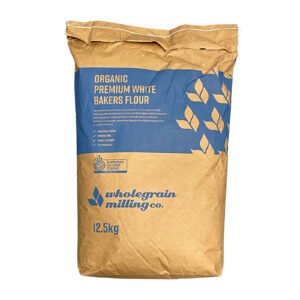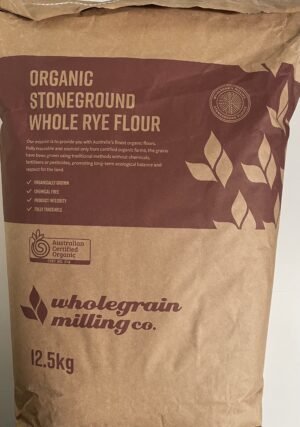Intolerant to gluten? You’re not alone. Gluten intolerance, a condition where your body reacts adversely to gluten – a protein found in wheat, barley, and rye – can cause various uncomfortable symptoms.
For those intolerant to gluten, finding suitable bread alternatives can be challenging. However, sourdough may be a friendly option for your dietary needs. Let’s explore why sourdough could be a favorable choice for those intolerant to gluten.
Caputo Italian Flour: An Essential in Italian Cooking.
Table of Content
The Fermentation Factor in Sourdough
The key to why sourdough can be suitable for people intolerant to gluten lies in its unique fermentation process.
Traditional sourdough fermentation involves a natural blend of wild yeast and bacteria, which work together to break down the gluten proteins in the flour. This process can make the gluten in sourdough bread more digestible compared to regular bread.
For those intolerant to gluten, this means sourdough may potentially be easier on the digestive system, although it’s not completely gluten-free.
Sourdough’s Lower Gluten Content
For individuals intolerant to gluten, the lower gluten content in sourdough is beneficial. The long fermentation period required for sourdough bread allows enzymes to break down the gluten into smaller, more digestible fragments.
This breakdown process reduces the overall gluten content of the bread. While this doesn’t make sourdough completely safe for those with celiac disease, it can be a viable option for those with a less severe intolerance to gluten.
Tips for Trying Sourdough If You’re Gluten Intolerant
If you’re intolerant to gluten and considering sourdough, there are a few tips to keep in mind.
Firstly, start with small amounts to gauge your body’s reaction. Opt for sourdough bread made from traditional, long fermentation processes, as these have a greater likelihood of reduced gluten content.
Additionally, experiment with sourdough made from lower-gluten grains like spelt, which can be more tolerable. Always listen to your body and consult with a healthcare professional before making significant dietary changes.
Intolerant to gluten doesn’t mean you have to completely forgo the joy of bread. Sourdough offers a potentially gentler alternative, thanks to its unique fermentation process and lower gluten content.
Remember, everyone’s tolerance levels vary, so it’s important to approach sourdough cautiously and mindfully if you’re intolerant to gluten. With careful consideration, sourdough could indeed become a friendly addition to your diet.






